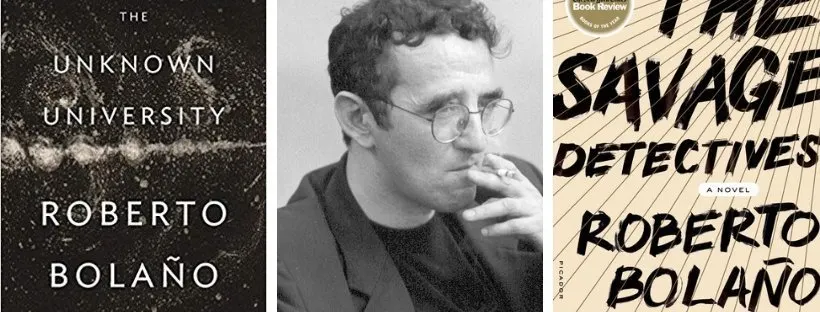Born in Santiago, Chile in 1953 but spending much of his youth in Mexico and his later adult life in Spain, Roberto Bolaño had already become a sensation in the Spanish speaking literary world before his untimely death in 2003.
Sadly, it’s only really in the years following his death that he’s started to gain wider recognition in the English speaking world through posthumous translations of his work that have garnered much critical acclaim. His bibliography spans poetry, short stories, novels and essays.
‘Books can do so many things – sometimes they spur you on to study, sometimes they entertain and sometimes they drive you to write yourself. Every time I read Bolaño I feel so inspired, I just want to write…He’s a genius – the expansiveness he creates, how he relates one book to another – he’s set a new template for writing. [When I read] I look for new landscapes, new experiences and, most importantly, for beautifully written books. That’s why I love Bolaño – he’s a master of language.’
– Patti Smith

On paper, Bolaño comes perilously close to sounding like a caricature of the high-brow literary experimentalist, given, as he is, to name-checking and referencing other literary and poetic figures both well known and obscure. Bolaño also had many of his characters (who are often writers, poets, publishers and literature professors themselves) engage in detailed literary critique and often centring his stories around imagined authors and literary movements.
His work is literature that grapples with its own identity as literature, interrogating its own nature whilst trying to shine a none-too-flattering light on the wider intellectual culture it stems from.
Throughout his work Bolaño imparts on his reader an acute feeling of melancholy and apprehension that derives not from a surreal otherness or existentialist probing of the absurdity of existence, but rather through an almost hyperreal magnification of the eerily haunted surfaces that already coat the world all around us.
Bolaño considered himself first and foremost a poet, only turning to fiction much later as a way to support his family, and the effects of this on his prose writing are clear. Bolaño plucks away the membrane separating the inner world of the human being with its perennial seeking and questioning from the external world that refuses to give us answers yet will not be silent either.
It’s an excellent choice of vehicle because it naturally facilitates an exploration of another of Bolaño’s common themes: violence. For all of his fixation on literary movements and the poetic community, Bolaño remained a deeply political figure (though these two domains often walk hand in hand in Latin America).
He spent time involved with journalism and political activism and allegedly spent a few days under arrest during the Pinochet regime.
As a result, there is also a very visceral element to much of his work, a reminder that however lofty our intellectual aspirations may be there is a very solid, very physical world out there threatening to snatch away our foundations at any moment.
The Best Books of Roberto Bolaño
It’s fair to say that Roberto Bolaño remains a difficult read, but more often than not it’s a difficulty born of trying to comprehend the not quite comprehensible. He shows us confronting a world that is fundamentally wrong yet one that offers no clue as to what right is either. Robert Bolaño has an extensive back catalogue as numerous unpublished works were found after his death.
The Savage Detectives
Bolaño’s fourth and really breakthrough novel. It traces the movements over several decades of the core figures of a poetic movement called the Visceral Realists. This was a group that most likely takes inspiration from and to an extent parodies the real life Infrarealist movement of which Bolaño was a founding member.
In fact, one of the central figures of the novel is a Chilean poet named Arturo Belano who in many ways represents Bolaño himself.
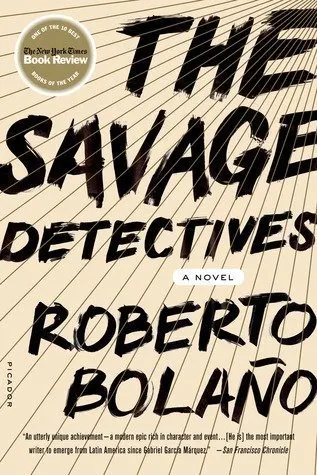
The novel tells its story through a myriad of different voices, some recurring numerous times, others only making single appearances, some sections last whole chapters and could almost stand alone as short stories whereas other narrators are only allotted half a page. It’s a bold and exciting work that won Bolaño the 1999 Rómulo Gallegos International Novel Prize.
“Belano, I said, the heart of the matter is knowing whether evil (or sin or crime or whatever you want to call it0 is random or purposeful. If it’s purposeful, we can fight it, it’s hard to defeat, but we have a chance, like two boxers in the same weight class, more or less.
If it’s random, on the other hand, we’re fucked, and we’ll just have to hope that God, if He exists, has mercy on us. And that’s what it all comes down to.”
2666
Bolaño’s final work and one that can rightly be considered a tour de force. Published a year after his death and originally intended to be released as 5 separate books, it was instead compiled into one 5 volume novel with the English translation weighing in around 900 pages.
It draws together the hallmarks of Bolaño’s style; forlorn mystery and literary speculation, violence and crime, and the sense of unease and something bad lurking in the skin of the world.
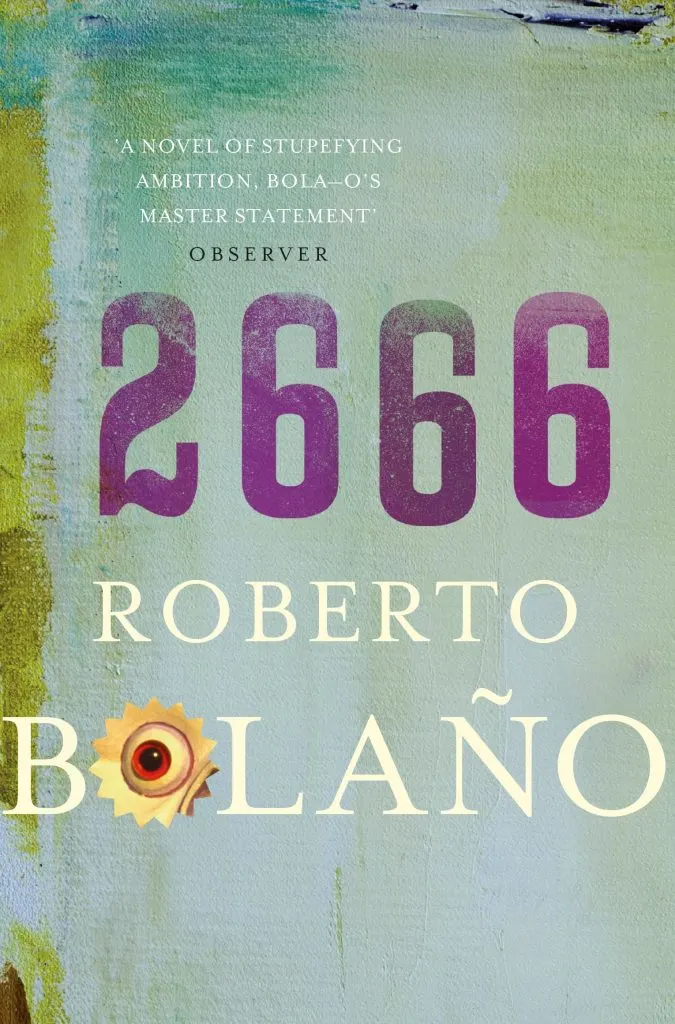
The novel links the search for a reclusive German novelist Benno von Archimboldi with the seemingly unending spate of murders of women taking place in the Mexican city of Santa Teresa (based on the real-life Ciudad Juárez).
It’s a staggering work that left me feeling untethered and disorientated in once familiar spaces for days after and dare I say that it even made me feel previously unfelt emotions.
Last Evenings On Earth
This English language collection gathers together stories found in the Spanish language collections Llamadas Telefonicas and Putas Asesinas.
The stories introduce us to an array of the lost, the wandering and the despondent, taking us between South America and Europe on the way. Although some of the stories veer too far into these are more than made up for by the stronger pieces.
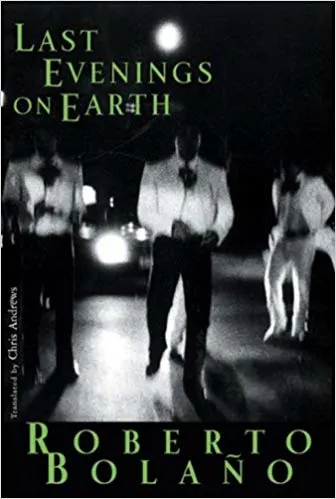
The highlight is the titular story in which Bolaño injects an insidious sense of uneasiness into a father and son’s coastal vacation mounting to a climax that leaves you grasping and flinching. It’s a masterwork of mounting anticipation and unresolved tension. Taken as a whole, the collection is one that will haunt the reader’s imagination.
The Unknown University
A deluxe collection of most of Bolaño’s poetry, Laura Healy’s translation was shortlisted for the 2014 Best Translated Book Award. Many of the poems here were written whilst he was still a youth and the growing mind of the writer is evident in the variety of different forms and style on display.
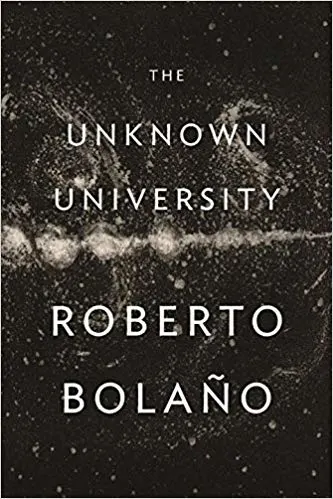
The quality varies greatly but there are some truly penetrating pieces on offer. Some of the poems are almost prose pieces and provide a glimpse into the germination of his later fiction style. He can create a beautiful lyricism out of the coldness of neon lights spread across Mexico City nights.
Related: Exploring Cambodia’s History with Jon Swain’s River of Time and Author Spotlight: The Life and Works of Banana Yoshimoto
